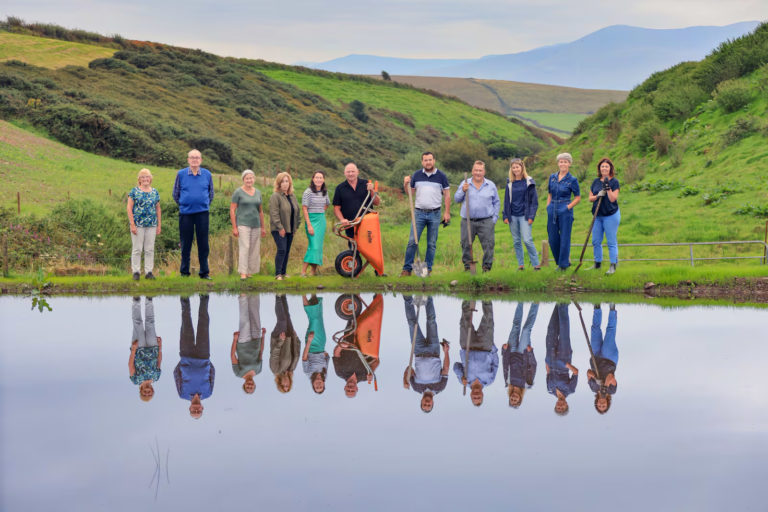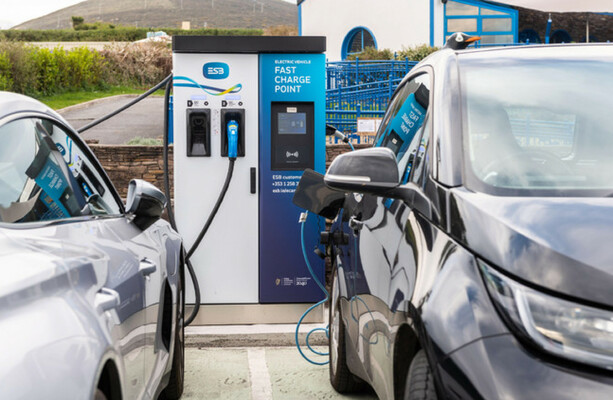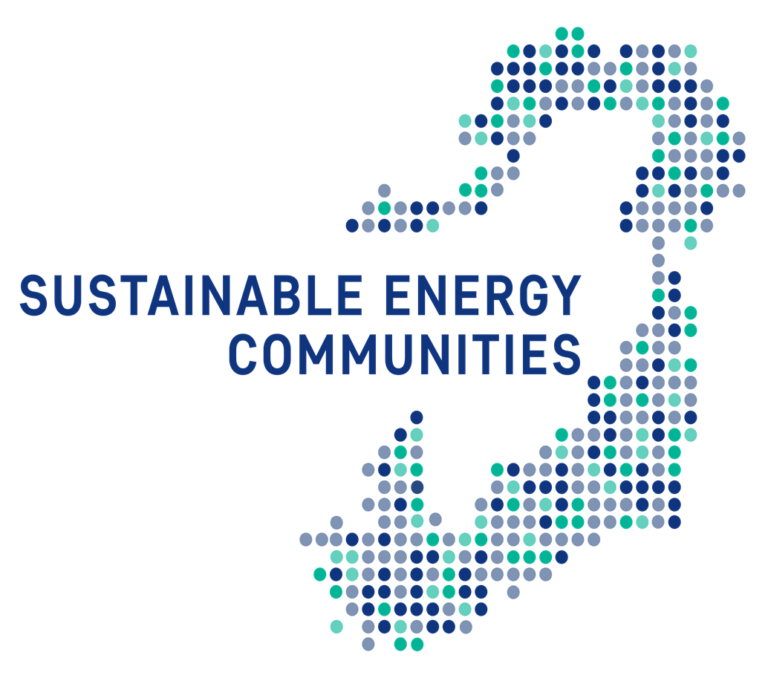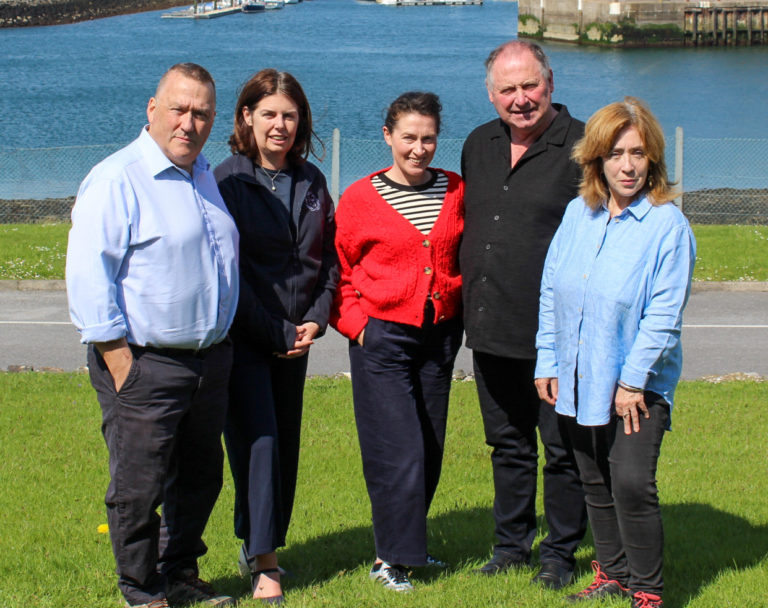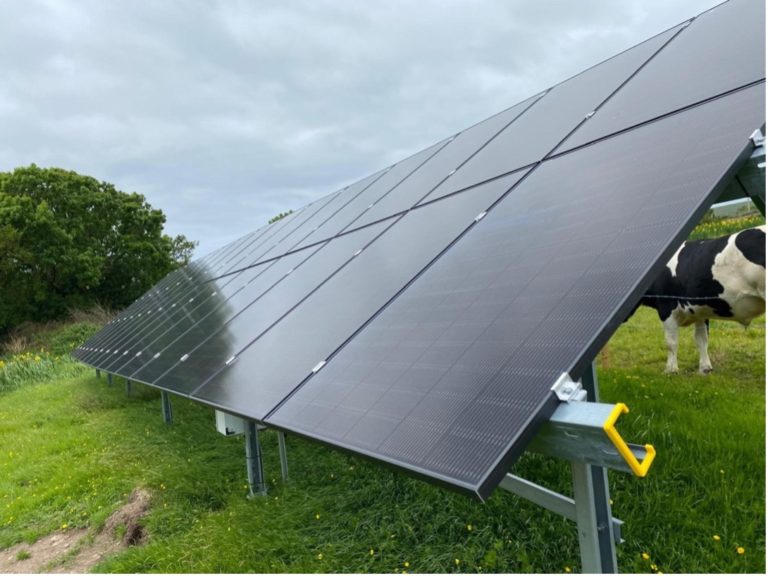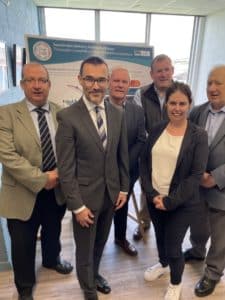
Dingle Hub hosted a visit today from Ken Spratt, Secretary General with the Department of Transport. He was here to meet some of the people and partners involved in the pilot Sustainable Mobility project under development.
He also met some Corca Dhuibhne locals who are also involved or already using sustainable modes of transport such as cycling, electric bikes and Local Link buses.
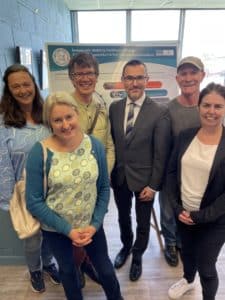
The Department is keen to follow what has and will be happening on Dingle Peninsula and to see how this approach to improving and decarbonising rural transport can be applied nationwide.
This is all part of the aim of reducing emissions from transport (referred to as mobility) in rural Ireland and is in line with the 2021 Climate Action Plan measures.
We were glad to be joined by senior members of Kerry County Council who are supporting us with this and other initiatives.
Alan O’Connell (Transport for Ireland’s Local Link Kerry Manager) introduced some of their board to Mr. Spratt and they spoke about their successes so far on Dingle Peninsula and their plans for the future.
Dingle Hub Manager Deirdre de Bhailís also gave the Secretary General an overview of the wider picture here and other initiatives that Dingle Hub is involved in, locally in Corca Dhuibhne as well as on a national and international level.
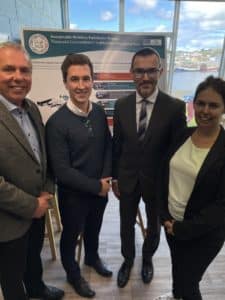
Fáilte Ireland was represented by Daithí Gallagher, Wild Atlantic Way Manager and Wild Atlantic Way Project Officer Declan Murphy. They were among the group that traveled onto Ionad an Bhlascaoid (The Blasket Centre) with Mr Spratt where they met representatives from Dingle Peninsula Tourism Alliance, amongst others. There they had the opportunity to speak about Fáilte Ireland’s Destination and Experience Development Plans and how Sustainable Mobility links in with Sustainable Tourism.
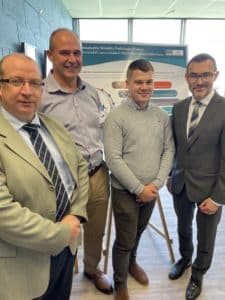
Colleagues from ESB Networks also talked about their ‘Dingle Project’ (part of the Corca Dhuibhne/Dingle Peninsula 2030 initiative) which saw them trial clean energy technologies to understand the impact on their networks and to inform policy and best practice for the future.
Of particular interest was their electric vehicle (EV) trial – to understand the impact of electric vehicle charging on the electricity network, with 17 cars provided to locals.

